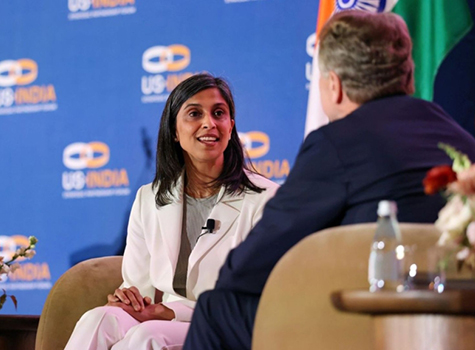
For the class of 2026, the University of Pennsylvania had an acceptance rate of 6.5 percent. Yale University accepted 4.6 percent of its applicants. The Ivy Leagues are incredibly challenging to get into each year, with many acceptance rates lowering each year due to the increase of applicants. With so many students fighting over a few coveted seats, what makes Ivy League degrees so much more valuable?
Networking
It’s no secret that Ivy League schools take great pride in their alumni network. This can be extremely helpful to a new graduate who can tap into that network for a job or interview. Even before graduating, students can use that network to find an internship or gain other valuable skills.
Money Spent on Students
Unless you get a full ride of an Ivy League school due to financial need, you are likely paying more for your education than students at non-Ivy schools. Even though students pay more, it does seem like they get more out of it as well, and the elite school pays 7.75 times more on each student than at second-tier schools. That means an Ivy League school pays $92,000 per student compared to just $12,000 at other schools.
Resources
When attending an Ivy League school, students have access to some of the best professors and researchers in the world. Most of these professors are actively engaged in various research projects. At these schools, new theories are constantly being explored, helping students to expand their studies further.
Earning Ability
According to a survey by Payscale that ranked the earning potential of alumni ten years after graduating, Princeton is at the top of the list. However, Dartmouth College (8), University of Pennsylvania (10), Harvard University (11), Yale University (16), Columbia (38), Cornell (40), Brown (41) were close behind.
Career Paths
Some people might take a second look at your resume when they see that you graduated from an Ivy League school. Goldman Sachs, Citigroup, and Morgan Stanley recruit heavily from UPenn to help fill their entry-level positions.
Does having an Ivy League degree mean that you will automatically be successful? Of course not, no. But it can help you get a leg up and make great connections.
How Important Are Senior Year Grades?
As the end of the school year is in sight, seniors might start to feel the itch of senioritis. After working hard on their college applications for months, they might feel they deserve a small break. After all, they have already sent their mid-year report and transcripts from the first three years of high school to the schools. Some students might be feeling secure because some universities might have already sent out an acceptance letter to them! So, how important are senior year grades?
For some students, the importance of senior year grades will vary on a couple of factors, including the competitiveness of the college or program you are applying to, the specific university’s policies, and any conditional offers of admission or scholarships you have received.
College Acceptances
Many early action and early decision schools have sent out their acceptance letters already, which might make you think that they won’t be considering your senior year grades. However, many universities use the phrasing “all offers of admission are conditional” or “provisional admission,” meaning that the universities can rescind their offer of acceptance because of poor grades or discipline reasons. High school counselors will send final transcripts, and if they are littered with low grades, it might mean the colleges no longer see you as a candidate who shares their core values and standards.
Scholarships
Many scholarships granted are based on merit, and you are expected to maintain a strong academic record to retain the scholarship. Therefore, if your grades slip below the minimum requirements, you might be jeopardizing the scholarship.
Competitive programs like BS/MD or BS/DMD
BS/MD, also known as direct medical programs, and BS/DMD, or direct dental programs, are highly competitive and often accept 10-20 students in their application class. For example, Case Western Reserve University’s Pre-Professional Scholars Program accepts less than 1% of its applicants. Due to the competitive nature of these programs, the admission committees will likely have higher standards and will rescind admissions offers if they believe your grades don’t reflect your readiness for the rigorous program.
As you consider your college admission offers, it is always a good idea to check each school’s policies and criteria. If there is a dip in grades due to personal challenges, it is always a good idea to contact the admissions office to communicate the situation. And while you aren’t necessarily expected to get straight “A’s” in your senior year, you should maintain the standards you have held yourself to over your entire high school career.
For more details, contact Brandie Erickson at brandie@moonprep.com



